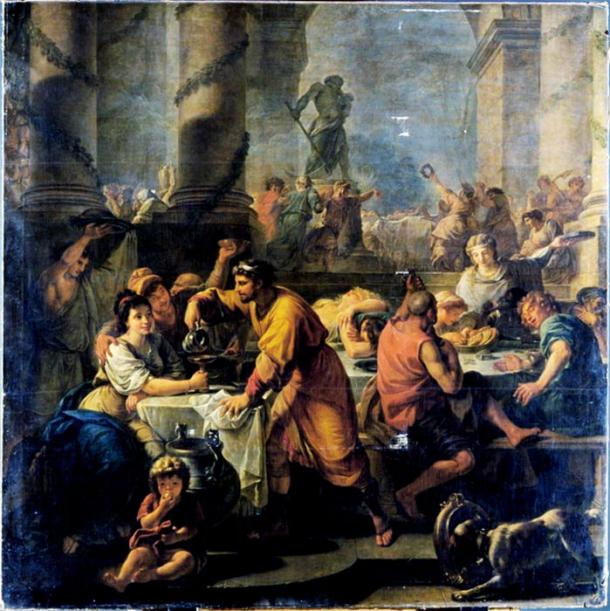According to popular tradition, Christmas is celebrated on December 25th to honor the birth of Jesus. However, no records exist in the Bible or elsewhere to suggest that Jesus was actually born on this date, which raises the important question – why is Christmas celebrated on December 25th? In fact, the selection of this date has its root in both Persian and pagan traditions.
Jesus Was Probably Not Born In December
The Catholic Encyclopedia admits “there is no month in the year to which respectable authorities have not assigned Christ’s birth.” There are, however, a number of reasons to suggest that Jesus was probably not born in December.
Firstly, Luke 2:8 states that on the night of Jesus’ birth “there were in the same country shepherds abiding in the field, keeping watch over their flock by night.” Many scholars agree that this would have been unlikely in December, as shepherds would have been keeping their flock under cover during the cold winter months.

Many scholars have stated that shepherds would not watch their flock overnight in December, but would keep them under cover. ‘The Good Shepherd’ from the early Christian catacomb of Domitilla/Domatilla (Crypt of Lucina, 200-300 AD). ( Public Domain )
Secondly, it is written in the Bible that Joseph and Mary travelled to Bethlehem to register in a Roman census (Luke 2:1-4). However, such censuses were not taken in winter when temperatures often dropped below freezing and roads were in poor condition.
But Pagan Celebrations Were Happening At That Time
Since it appears unlikely that Jesus was born on December 25th, it raises the logical question of why Christmas is celebrated on this date. The answer points back to pagan celebrations which occurred around the winter solstice. Two celebrations in particular took place around December 25 – Saturnalia and the birthday of the sun god, Mithra.

‘Saturnalia’ by Antoine Callet . ( CC0)
The Saturnalia festival began on December 17th and later expanded with festivities through to December 25th. It paid tribute to Saturn, the agricultural god of sowing and husbandry, and was associated with the renewal of light and the coming of the new year. The holiday was celebrated with a sacrifice in the Temple of Saturn, followed by a public banquet and private gift-giving, continual partying, and a carnival atmosphere.
It Was Mithra’s Birthday
Followers of the cult of Mithras (Mithra), which became popular among the military in the Roman Empire from the 1st to 4th centuries AD, are believed to have celebrated his birthday on December 25th, which was the most holy day of the year for many Romans.

Marble carving of the god Mithras slaying a mystic bull. ( Reimar / Adobe Stock)
The worship of the sun god, Mithra (proto-Indo-Iranian ‘Mitra’), has its origin in Persia, from around the 6th century BC, and was later adapted into ancient Greece as ‘Mithras’. The most popular hypothesis is that Roman soldiers encountered this religion during military excursions to Persia.
While it is widely accepted that the Mithraic New Year and the birthday of Mithras on December 25 were celebrated as part of the Roman Natalis Invicti festival, some scholars have argued that the Natalis Invicti was a general festival of the sun, and was not specific to the Mysteries of Mithras. Nevertheless, it is clear that December 25 was an important day for the Romans and it revolved around a celebration of the sun.

Dedication made by a priest of Jupiter Dolichenus on behalf of the well-being (salus) of the emperors, to Sol Invictus and the Genius of the military unit equites singulares Augusti. ( Public Domain )
The Pagan-Christian Fusion, Why We Celebrate Christmas on December 25
When King Constantine converted to Christianity in the fourth century, he had quite a challenge ahead of him with regard to converting an empire full of pagans. It was therefore decided to celebrate the birth of Jesus on a date that was already sacred according to pagan traditions.
So as a compromise with paganism and in an attempt to give the pagan holidays Christian significance, it was simply decided that the birthday of the Sun God would also be the birthday of the Son of God. The Catholic Encyclopedia quotes an early Christian as saying, “O, how wonderfully acted Providence that on that day on which that Sun was born…. Christ should be born.”
Top Image: The birthday of a Sun God became the birthday of the Son of God. Source: Renáta Sedmáková /Adobe Stock
Updated on December 25, 2020.
 RSS Feed
RSS Feed















 December 26th, 2020
December 26th, 2020  Awake Goy
Awake Goy  Posted in
Posted in  Tags:
Tags: 













